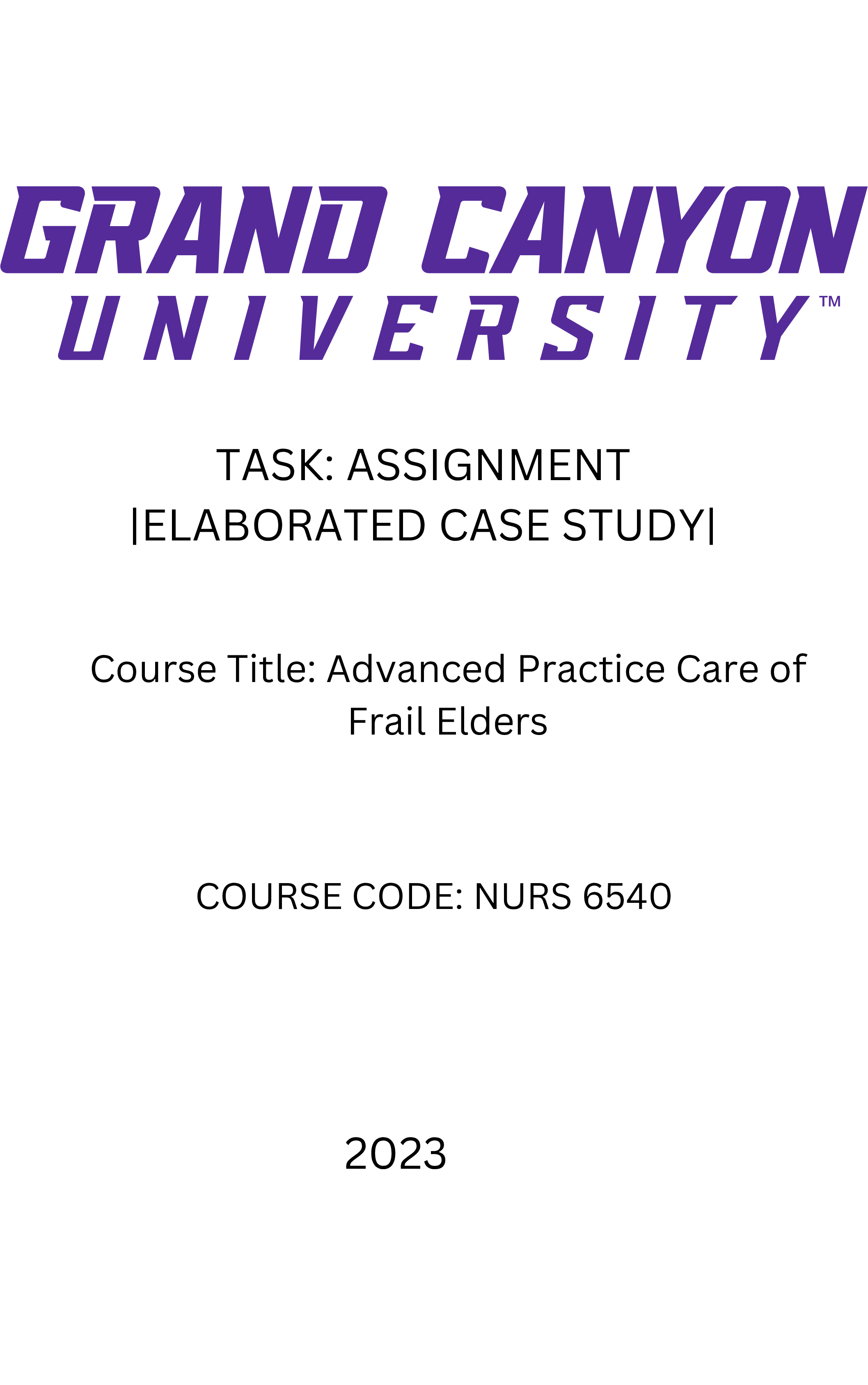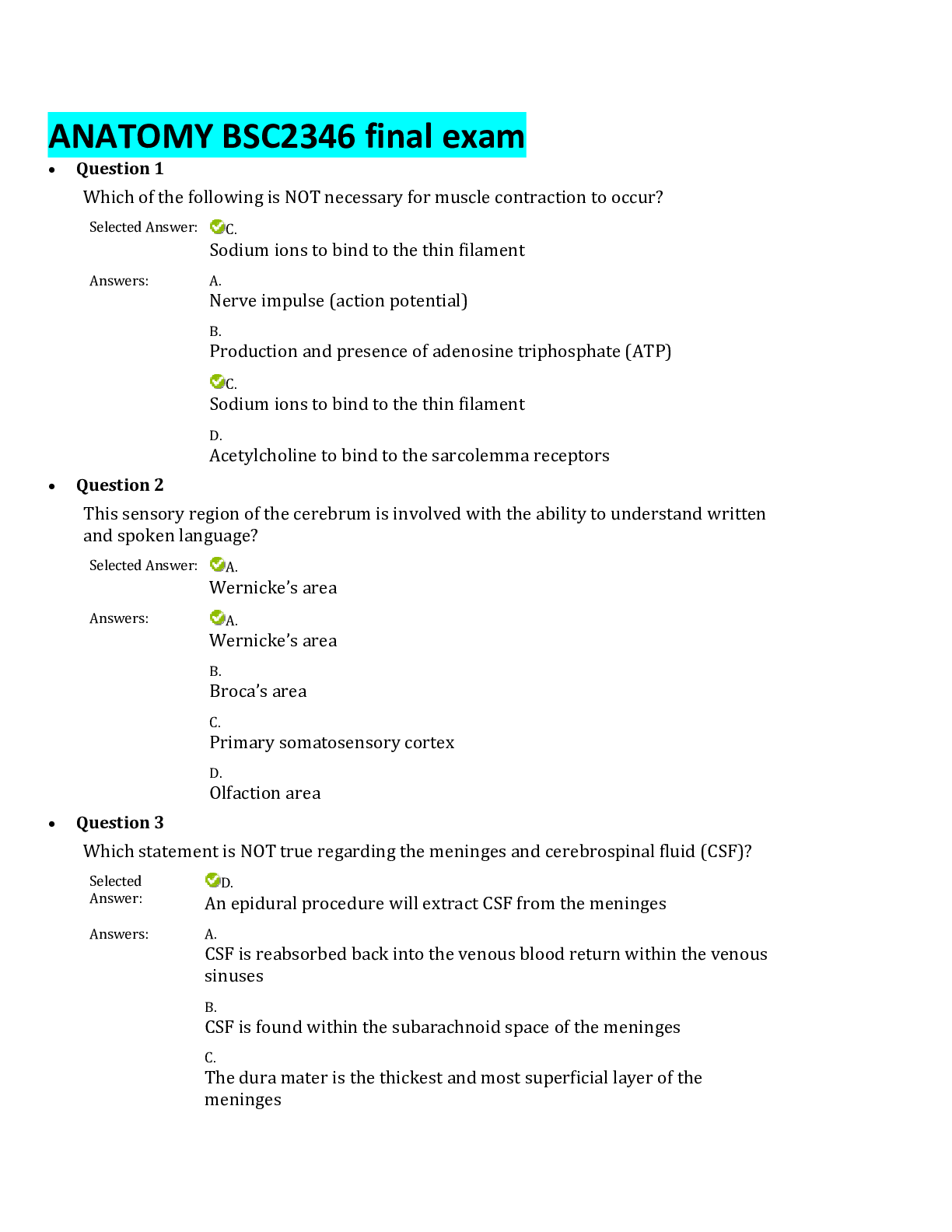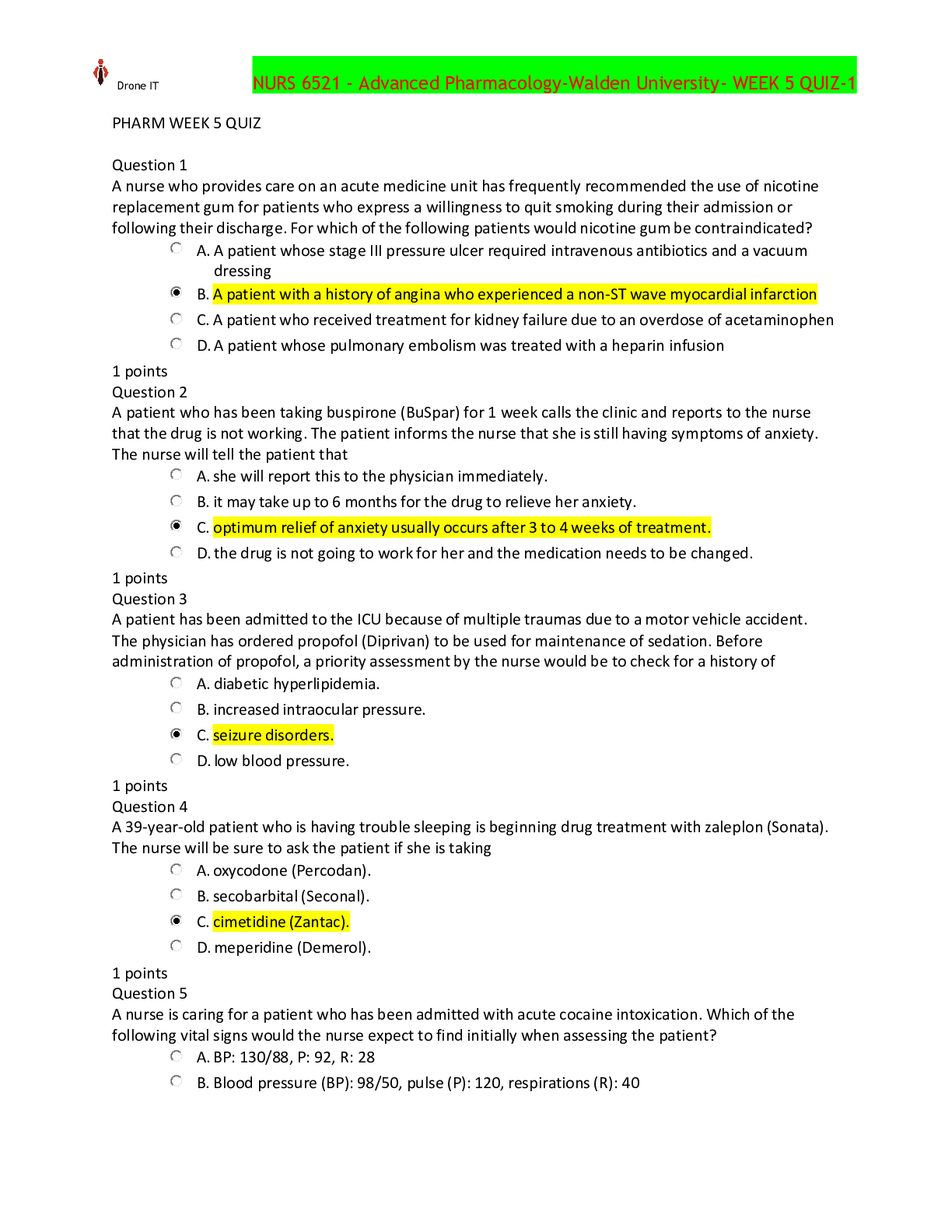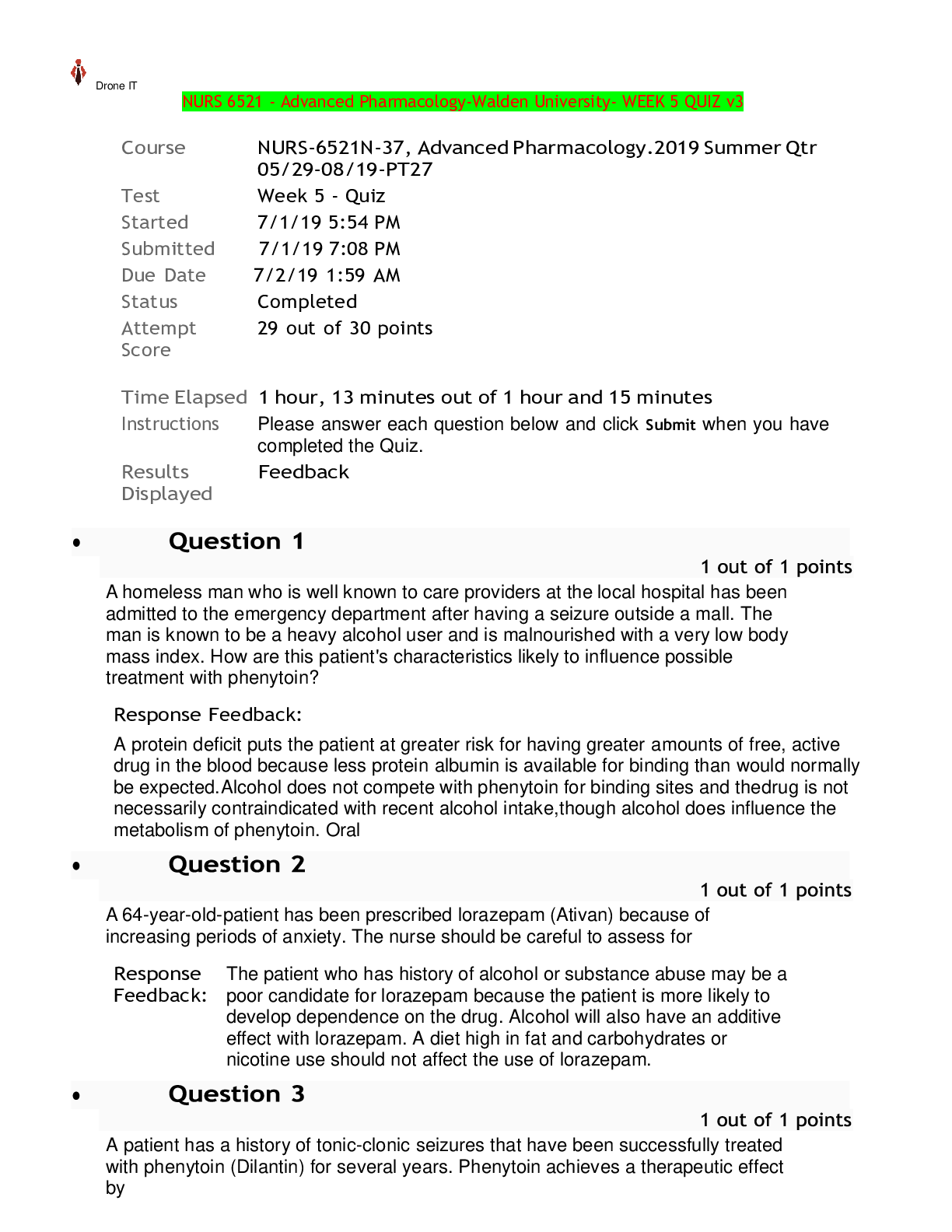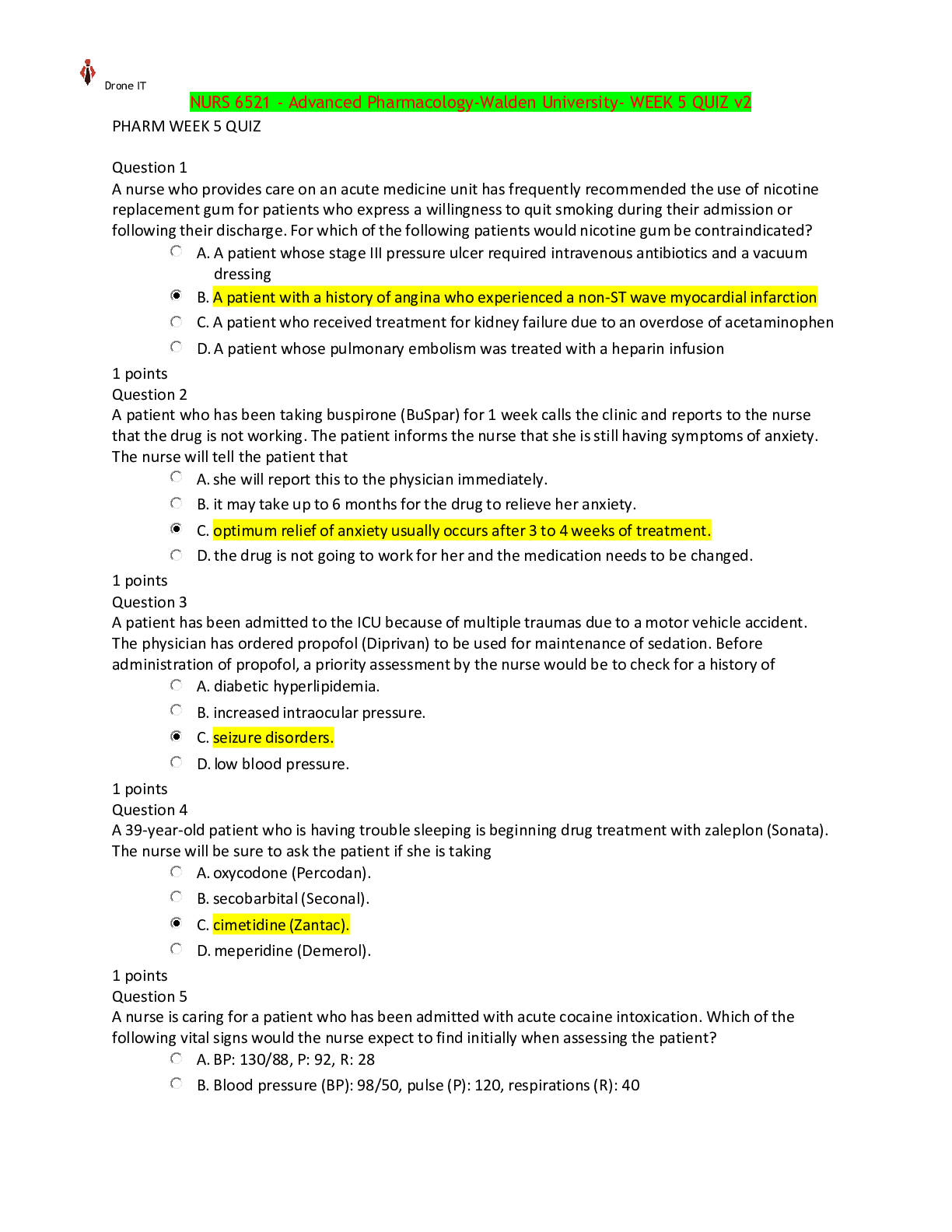H410 01 Film History Sample Assessment Material
Document Content and Description Below
SECTION A – Film Form in US Cinema from the Silent Era to 1990 Answer Questions 1 and 2, and either Question 3 or Question 4 You should have studied one US film from each of the lists below. Quest... ions 1–4 require you to write about the US films you have studied. Silent Era 1930–1960 1961–1990 Birth of a Nation* (1915). Directed by DW Griffith. USA Citizen Kane (1941). Directed by Orson Welles. USA 2001: A Space Odyssey (1968). Directed by Stanley Kubrick. USA The Gold Rush (1925). Directed by Charles Chaplin. USA Singin’ in the Rain (1952). Directed by Gene Kelly/Stanley Donen. USA Raging Bull (1980). Directed by Martin Scorsese. USA The Mark of Zorro (1920). Directed by Fred Niblo and Theodore Reed. USA Stagecoach (1939). Directed by John Ford. USA E.T. (1982). Directed by Steven Spielberg. USA The General (1926). Directed by Clyde Bruckman/Buster Keaton. USA Vertigo (1958). Directed by Alfred Hitchcock. USA Do the Right Thing (1989). Directed by Spike Lee. USA Sunrise (1927). Directed by FW Murnau. USA Double Indemnity (1944). Directed by Billy Wilder. USA The Conversation (1974). Directed by Frances Ford Coppola. USA The Wind (1928). Directed by Victor Sjostrom. USA All that Heaven Allows (1955). Directed by Douglas Sirk. USA West Side Story (1961). Directed by Jerome Robbins– Robert Wise. USA *The last assessment for Birth of a Nation is June 2022. The set film will be replaced with Wings (1927). Directed by William A. Wellman. USA, PG which will be available for first teach from September 2021. Answer Questions 1 and 2. 1 With reference to a sequence from the film made between 1930–1960 which you have studied, explain how diegetic and non-diegetic sound have been used to create meaning in the sequence. [10] 2 With reference to a sequence from the silent film you have studied, analyse how cinematography has been used to create aesthetic effects. [10] Answer either Question 3 or Question 4. EITHER 3* ‘Film is just about spectacle; narrative resolution does not matter.’ Compare how this quotation applies to two films you have studied. You must refer to examples from one film from 1930– 1960 and examples from one film from 1961–1990 in your answer. [35] OR 4* With reference to examples from one film from the silent era and examples from one film from 1961–1990, compare how the use of sound and editing creates aesthetic effects for the spectator. [35] 3 © OCR 2020 H410/01 Turn over SECTION B – European Cinema History Answer Question 5 and either Question 6 or Question 7 You should have studied both of the experimental surrealist films below: Un Chien Andalou (1929). Directed by Luis Buñuel. France. 15 L’Age D’or (1930). Directed by Luis Buñuel. France. 15 You should also have studied one film from the table below: German expressionist French new wave The Cabinet of Dr. Caligari (1920). Directed by Robert Wiene. Germany, U The 400 Blows (1959). Directed by François Truffaut. France, PG Nosferatu (1922). Directed by F.W. Murnau. Germany, PG À Bout de Souffle (1960). Directed by Jean-Luc Godard. France, PG Metropolis (1927). Directed by Fritz Lang. Germany, PG Cleo from 5 to 7 (1962). Directed by Agnes Varda. France, PG Answer Question 5 5 With reference to examples from both experimental surrealist films you have studied, explain how cinematography and editing have been used to challenge conventional narratives. [15] Answer either Question 6 or Question 7 EITHER 6* Analyse how the German expressionist or French new wave film you have studied approaches the concept of narrative. [35] OR 7* ‘Realism in film is much more powerful for the spectator than the expressive’. Analyse how this quote applies to the German expressionist or French new wave film you have studied. [35] END OF QUESTION PAPER [Show More]
Last updated: 2 years ago
Preview 1 out of 28 pages

Buy this document to get the full access instantly
Instant Download Access after purchase
Buy NowInstant download
We Accept:

Reviews( 0 )
$16.00
Can't find what you want? Try our AI powered Search
Document information
Connected school, study & course
About the document
Uploaded On
Jul 01, 2021
Number of pages
28
Written in
Additional information
This document has been written for:
Uploaded
Jul 01, 2021
Downloads
0
Views
62

